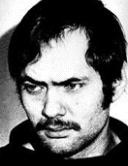Jean-Paul Sartre 1974

Translated: for marxists.org by Mitch Abidor 2004.
First Published: Libération, December 7, 1974;
CopyLeft: Creative Commons (Attribute & ShareAlike) marxists.org 2004;
Andreas Baader and Ulrike Meinhof were the leaders of the Red Army Faction, an urban terrorist group which carried out kidnappings and assassinations in the 1970s. They died under suspicious cicrumstances while in prison in Germany in 1977.
At the beginning, we shook hands. He seated himself across from me and then, after three minutes, the first thing he said, a little as if it were a greeting, was: “I thought I was dealing with a friend, but they sent me a judge...”
Obviously, this was because of the statement I'd made on German TV the night before.
I think that he also hoped that I had come to defend him and his comrades based on the actions they'd taken. He saw that I wasn’t in agreement with them. I came as a man of the Left in sympathy with any Left-wing group in danger; this is an attitude that I think should be generalized.
I came so that he could give me his point of view on the struggle they'd conducted. Which he did, by the way.
And I hadn’t come to say I was in agreement with him, but simply to learn which of his opinions could be taken up again elsewhere, if we think they were correct, and also to talk about his situation in the prison as a prisoner.
We then spoke of his life in prison. I asked him why he was on a hunger strike. He answered that he was doing it in protest against the conditions of his incarceration.
As we now know, there are a certain number of cells in the prison I went to, but these also exist in other German prisons. They are separated from the other cells; they are painted white and the electricity works until 11:00 pm, and sometimes 24 hours out of 24.
And there’s something he’s missing: sound. Apparatuses in the interior of the cell select sounds, weaken them and render them perfectly inaudible within the cell itself.
We know that sound is indispensable to a human body and consciousness. There must be an atmosphere surrounding a person.
Sounds, which we call silence — but which carry to us, for example, the sound of a passing tram, that of a passer-by on the street, warning sirens — are connected to human conduct; they mark human presence.
This absence of communication with others through sound creates profound problems — circulatory problems of the body, and problems of consciousness. These latter destroy thought by rendering it increasingly difficult. Little by little, it provokes blackouts, then delirium, and, obviously, madness.
So even if there is no “torturer,” there are people who squeeze certain levers on another level. This torture provokes deficits in the prisoner; it leads him to stupefaction or to death.
Baader, who is a victim of this torture, speaks quite appropriately, but from time to time he stops, as if he has lost his train of thought. He takes his head in his hands in the middle of a sentence and then starts up again two minutes later.
His body has grown thin from his hunger strike; he is force fed by prison doctors, but he is very thin and has lost 15 kilos; he floats in his clothes, which have become too big. There is no longer any relation between the Baader I saw and the man in good health.
These procedures, reserved for political prisoners alone — at least, those of the Baader-Meinhof Group — are procedures contrary to the Rights of Man.
According to the Rights of Man, a prisoner should be treated like a man. To be sure, he is locked up, but he shouldn’t be the object of any torture, or anything having as its goal to bring on the death or degradation of the human person. This system is precisely against the human person and destroys it.
Baader is still resisting very well. He is weakened, he is surely ill, but he remains conscious. Others are in a coma.

There is fear for the lives of five detainees within the next few weeks, few months, or perhaps even days. It is urgent that a movement be set up to demand that the prisoners be treated in accordance with the Rights of Man; that they not suffer from any particular ill-treatment that could prevent them from correctly answering any questions that will be posed to them the day of their trial or even, as has already happened once, to kill them.
There is already in existence a defense committed for the German Prisoners in France. This committee works together with Holland and England. But it’s important that a committee of this kind be created in Germany, made up of intellectuals, doctors, and people of all kinds who demand that both those arrested for common crimes and political prisoners be treated in the same way.